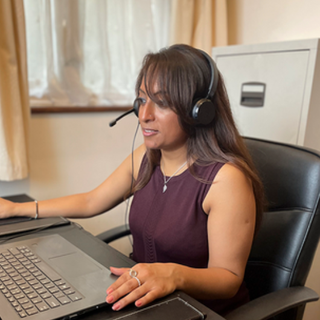It’s other people who keep you going
Jess describes her journey from diagnosis to recovery after treatment for diffuse large B-cell lymphoma, and how the people closest to her helped her through.
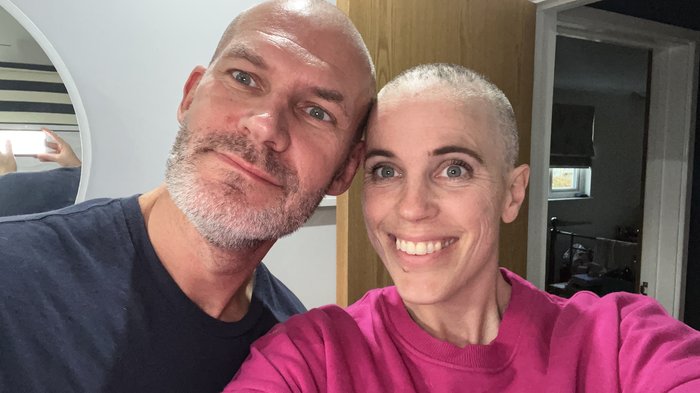
The path to diagnosis
In January 2023 I went to my local doctor about a lump in the back of my neck - I wasn't overly worried and the doctor said it was possibly just a swollen lymph node that would go away, but if it didn't, to go back. My only other concern was how tired I had been, but I put that down to my thyroid and just a busy job and lifestyle.
Around May I returned to the doctor because my lump had tripled in size and my fatigue was worse. The doctor sent me for a weekend ultrasound. A few days later she called to say she wanted to get a few more tests so I was sent to Ear Nose and Throat (ENT) at my local hospital.
In July another lump had appeared. So I was sent for a fine needle aspiration (FNA) on both lumps.
I then went off for my summer holidays not really thinking too much about it. I didn't want to worry when I didn't know anything.
The summer passed and I returned to work. In September I was told the FNA had come back with “possible” lymphoma, but they needed to remove the second lump which was by my collar bone.
I had the operation and was told the results could take a little while, so not to worry too much. I had two weeks off to recover. I returned to work on Monday 16th October and had my appointment with haematology on Thursday 19th October.
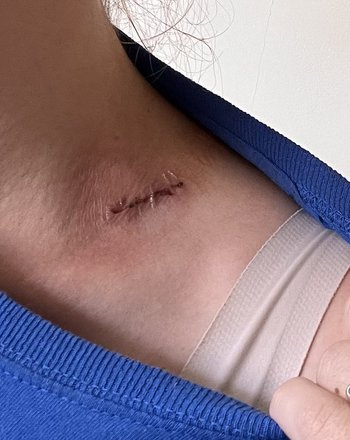
I turned up at the reception area and was told they were just getting ready. I said to my husband, “It can't be good news if there are two medical professionals there.”
We were called in and I was asked to go over my journey up to this point, and my symptoms. These were mainly fatigue and for the past few weeks I’d had pain in my side when I slept, which I thought was just from the gym.
I was told I had diffuse large B-cell lymphoma (DLBCL) and it was in my neck, chest and spleen.
They said the treatment was R-CHOP chemotherapy and they needed to start as soon as possible, there wasn't time to wait. I asked what they meant, and they said, “We need you in next week.” My reply: “But it's my 40th birthday on Monday - I'm not coming in on Monday.” They agreed I could start later in the week.
Joining a clinical trial
The second medical professional was there to talk to me about a clinical trial. By this point, l was physically in the room but mentally I had left. We collected the information and went home to look it over.
We decided the trial was the right thing for me, and luckily I met the criteria to join. This meant that throughout my treatment I had a trial nurse, additional blood tests and extra scans.
Everything has to happen in a particular order at a particular time, which some people might find overwhelming, but I found it a comfort. I felt like I had my hand held all the way.
I started my first cycle of chemo on Thursday 26th October, seven days after diagnosis and three days after my 40th birthday.
I had six rounds of R-CHOP and my trial drug, acalabrutinib. The road felt never ending, emotional, draining and the toughest thing my mind, body and soul has ever had to endure, but I was surrounded by such wonderful people.
Support from loved ones
The love and support I got was truly the most powerful and humbling experience. I had a team of cheerleaders who never once let me give up on myself.
As an adult you feel like you don’t need your parents as much as you do growing up but I was incredibly fortunate to have two parents who kept my spirits up and offered much needed practical and emotional support and guidance. My parents were and are amazing.
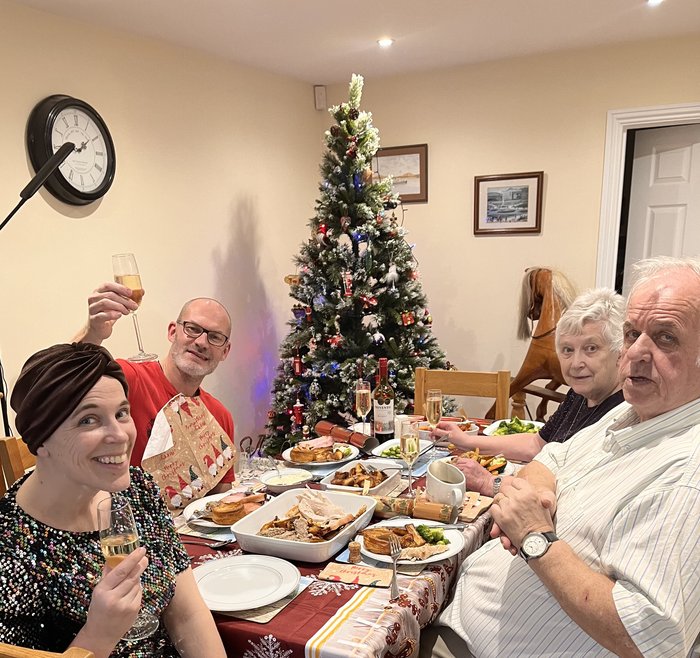
My family and friends made sure I had everything I needed, and that my husband wasn’t overwhelmed. They even competed to take me to chemo. I’d often wake up and find a little care package on the doorstep. People would send me books to read. These things keep you going, because there are times when you start to flag a bit.
My husband was and always will be my rock. He did everything he possibly could, every day.
He made sure I was eating properly and drinking enough. If I was upset, which was quite often, he would just allow me to be upset, because you can’t be positive all the time.
But living the cancer journey is awful for loved ones. They are watching someone they love suffer and there isn’t anything they can do, which must make them feel incredibly helpless. And it’s tiring too, on top of work and everything else going on.
So my husband also relied on close friends. In the weeks when I was feeling OK, he would go out for a beer, a meal or a walk with them, just to maintain some sense of normality. Otherwise it becomes all-consuming.
Rebuilding my life
I finished my chemo in February and have no visible sign of cancer. I will continue my follow up appointments and start to rebuild my life.
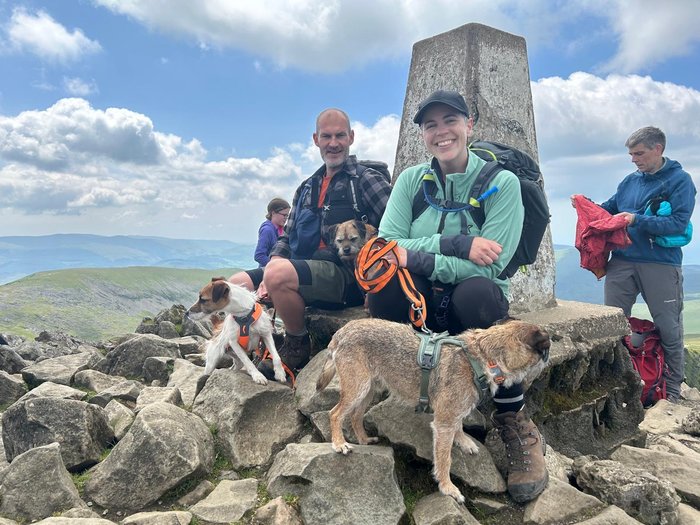
For me, that means getting back to the things that make me feel happy - getting outside a lot, walking, building strength. It’s not a case of “I’m finished, I’m fine now” the moment the treatment stops.
You can’t go at things a million miles an hour. It’s about taking small steps. But you do start to feel better. And you can build on that.

